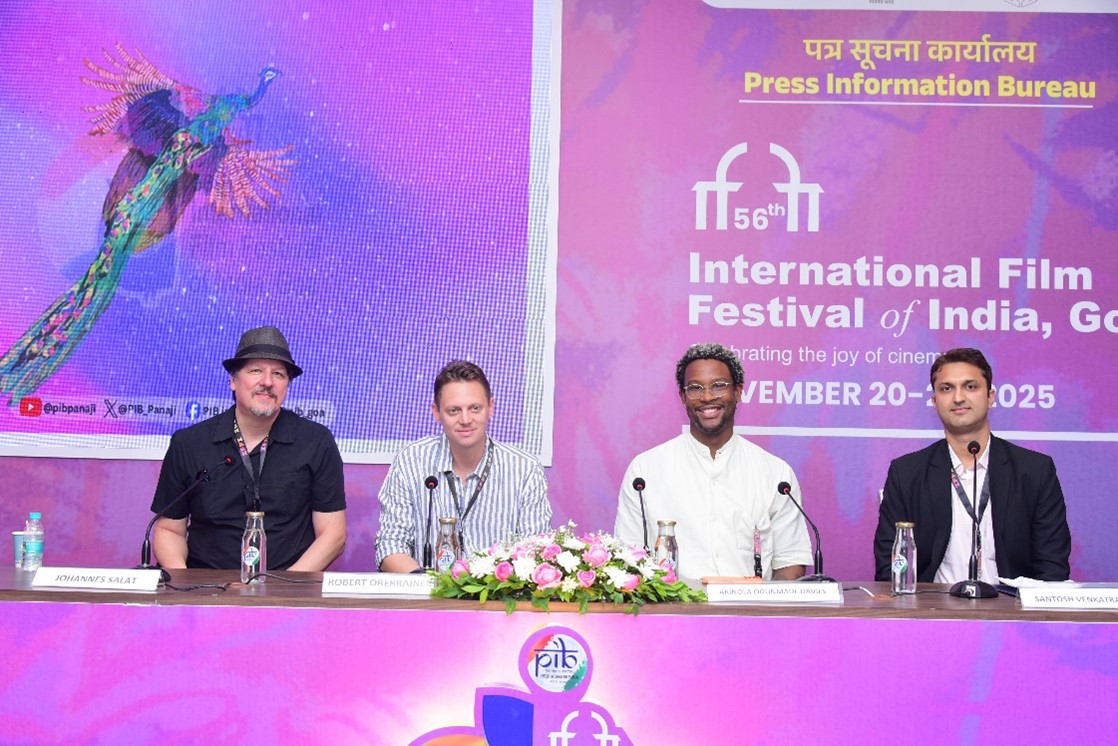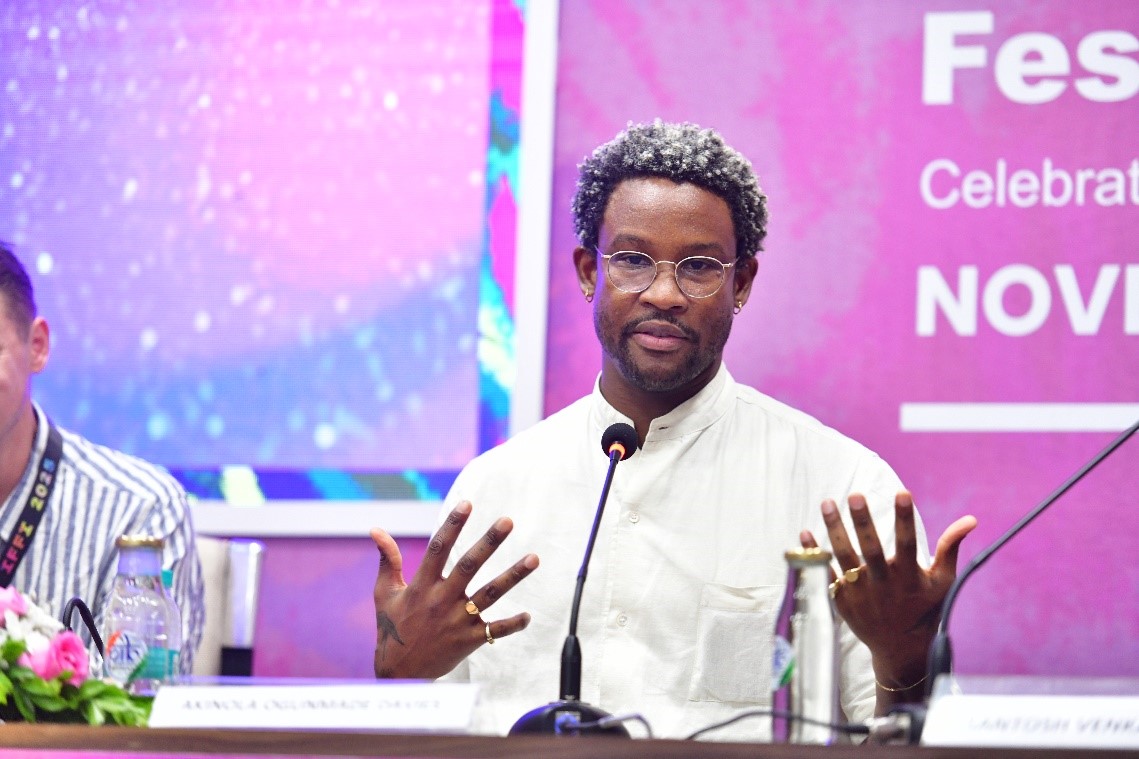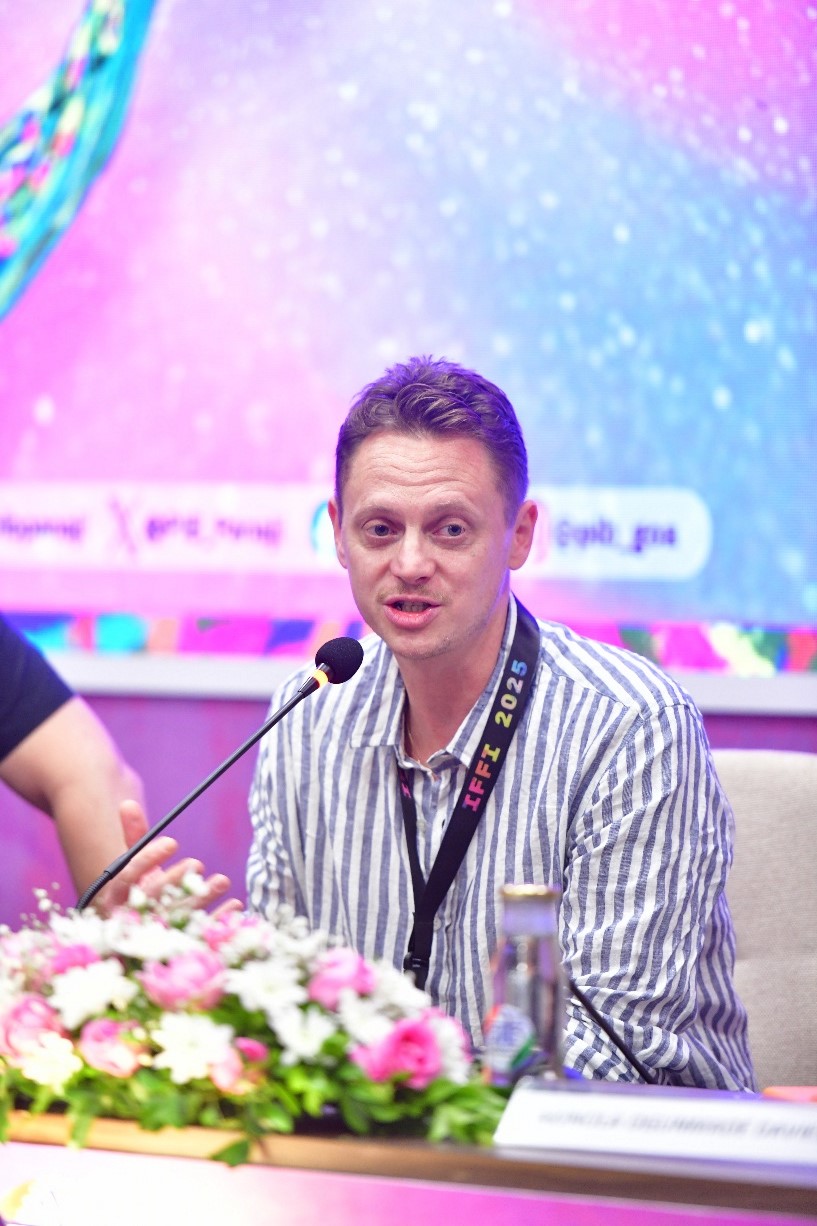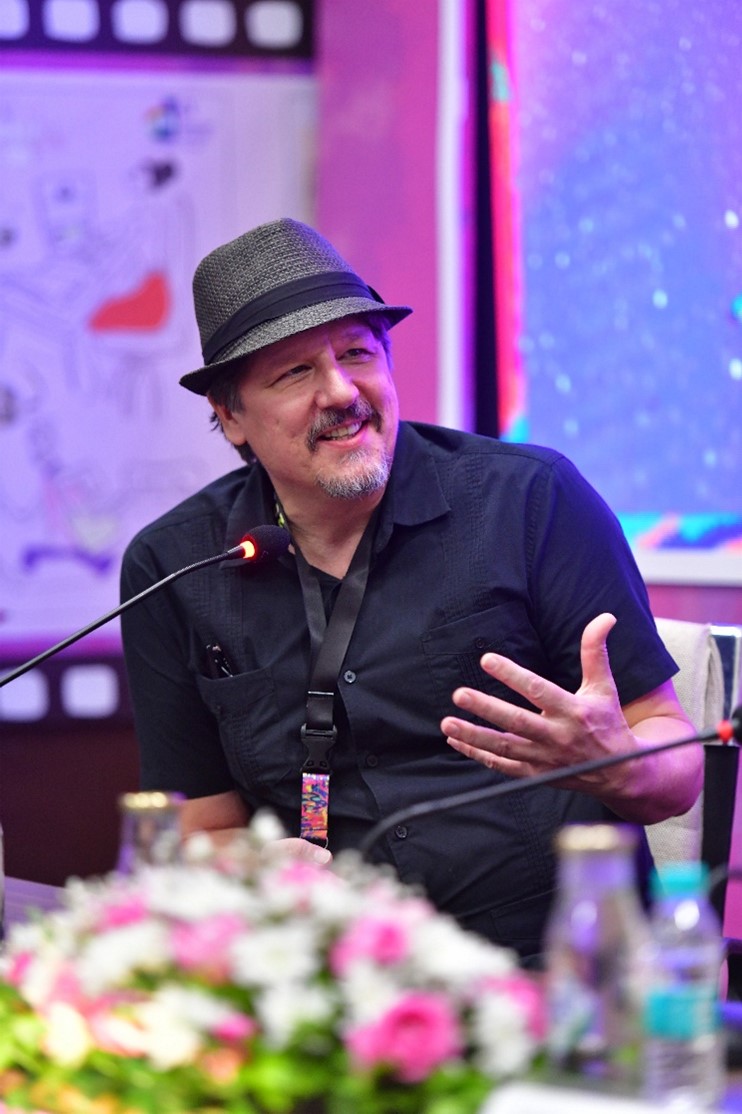Global Voices at IFFI Explore Motherhood, Identity and History Through Two Powerful Films
Akinola’s ‘My Father’s Shadow’ Lays Bare the Raw Pulse of Life and Politics
‘Mother’s Baby’ Speaks in Emotion, Unfolding the Many Shades of Motherhood
#IFFIWood, 25 November 2025
Two vastly different yet emotionally resonant worlds converged at IFFI today as the teams of ‘Mother’s Baby’ and ‘My Father’s Shadow’ engaged in a spirited conversation on craft, memory, and the intimate ways in which cinema reflects lived realities. The session brought together ‘Mother’s Baby’ cinematographer Robert Oberrainer and production designer Johannes Salat, alongside Akinola Ogunmade Davies, director of ‘My Father’s Shadow,’ a film making waves globally as the UK’s official Oscar entry and the first Nigerian film to screen at Cannes.

A Lagos Day That Holds a Lifetime: Akinola’s Intuitive Filmmaking Journey
Opening the conversation, Akinola traced the origins of ‘My Father’s Shadow’ to an early short film written by his brother. Set against the backdrop of the 1993 Nigerian elections, the film mirrors their own childhood memories of political tension.
Akinola explained that instinct guided much of his creative process. “The micro story is the father and his boys. The macro story is the election and everything gets blended,” he reflected. The film moves within a single day, a choice Akinola describes as freeing. “It allowed us to build tension naturally. And with everything happening in one day, we weren’t tied down by continuity. We could focus on emotion.”

The filmmaker spoke candidly about the emotional and technical hurdles of the shoot, particularly the beach scenes, where 16mm film struggled against heat and sound. A funeral sequence left him emotionally spent: “I stayed in bed for two days and cried,” he admitted, calling such moments “testimonies of powerful filmmaking.”
As he spoke, Akinola also offered the audience a textured glimpse into Nigeria itself. He touched upon Nigeria’s political landscape, linguistic diversity, and even the gaps in historical education. English, Creole, and street vernacular find space in his film, and for Akinola, this linguistic fluidity mirrors the social and cultural mix that defines Nigeria. His reflections painted a vivid picture of a country that remains underrepresented in contemporary cinematic history.
The Unspoken, Unsettling Layers of Motherhood in ‘Mother’s Baby’
For the team behind ‘Mother’s Baby,’ the film’s emotional engine was the journey of a woman navigating the disorienting aftermath of childbirth. Cinematographer Robert Oberrainer shared that their foremost intent was to depict “the real changes a woman undergoes during childbirth.”

The film follows Julia, a celebrated orchestra conductor whose baby, conceived through an experimental fertility procedure, feels somehow unfamiliar. Robert said their visual approach was designed to allow audiences to “walk with her,” into an unsettling psychological terrain.
Production designer Johannes Salat stressed the importance of the story’s theme: “It’s a subject deeply important for women,” he said, calling the film a universal narrative that could “happen anywhere.” Creating the world of the film was, for him, both challenging and intuitive, and the location they eventually chose “felt like it belonged to the story.”
The film’s tension grows quietly: subtle mismatches between how others react to the baby and how the mother does. “That’s where suspense begins,” Robert noted. He also discussed the film’s open-ended climax, describing it as a puzzle the audience must assemble for themselves.
The Art of Changing Course: Filmmaking as Reinvention
Both teams reflected on filmmaking as a constantly evolving process. Robert explained that on ‘Mother’s Baby,’ shots intended for later in the film sometimes made their way into the beginning. He said that these were the decisions he, as a Cinematographer, initially resisted, until the director reminded him that “emotion comes first, not continuity.”

Johannes agreed, noting that filmmaking often leads to unexpected destinations: “Sometimes you end up in a place better than where you thought you were going.” Akinola echoed the sentiment: “You make the film three times—while writing, while shooting, and while editing.” Deviations, he said, aren’t detours but discoveries.
By the close of the session, what remained was a lively cross-current of experiences: two films carved from contrasting landscapes, but connected through raw instinct, artistic truth, and a common faith in storytelling’s wild, unpredictable journey.
PC Link:
About IFFI
Born in 1952, the International Film Festival of India (IFFI) stands tall as South Asia’s oldest and largest celebration of cinema. Jointly hosted by the National Film Development Corporation (NFDC), Ministry of Information and Broadcasting, Government of India and the Entertainment Society of Goa (ESG), State Government of Goa, the festival has grown into a global cinematic powerhouse—where restored classics meet bold experiments, and legendary maestros share space with fearless first-timers. What makes IFFI truly sparkle is its electric mix—international competitions, cultural showcases, masterclasses, tributes, and the high-energy WAVES Film Bazaar, where ideas, deals and collaborations take flight. Staged against Goa’s stunning coastal backdrop from November 20–28, the 56th edition promises a dazzling spectrum of languages, genres, innovations, and voices—an immersive celebration of India’s creative brilliance on the world stage.
For more information, click on:
IFFI Website: https://www.iffigoa.org/
PIB’s IFFI Microsite: https://www.pib.gov.in/iffi/56/
PIB IFFIWood Broadcast Channel: https://whatsapp.com/channel/0029VaEiBaML2AU6gnzWOm3F
X Handles: @IFFIGoa, @PIB_India, @PIB_Panaji
* * *
 PIB IFFI CAST AND CREW | Ritu Shukla/Sangeeta Godbole/Sreeshma K/Darshana Rane | IFFI 56 - 070
PIB IFFI CAST AND CREW | Ritu Shukla/Sangeeta Godbole/Sreeshma K/Darshana Rane | IFFI 56 - 070
रिलीज़ आईडी:
2194171
| Visitor Counter:
403